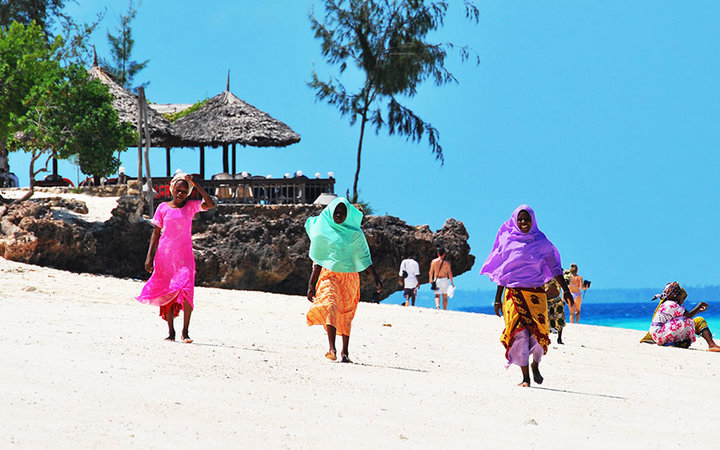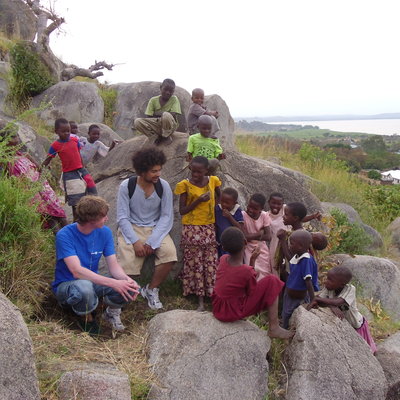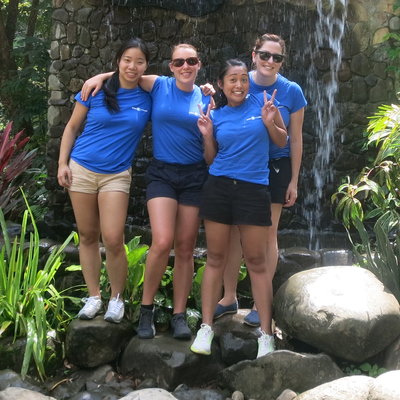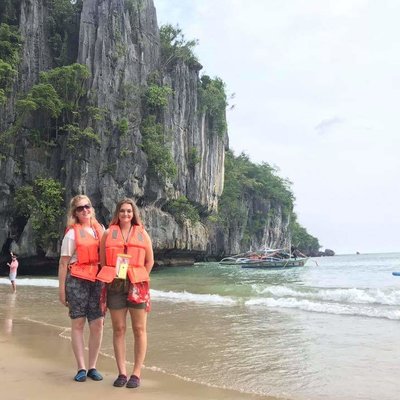Rosie is a qualified midwife based in Bristol. She travelled to Tanzania with us in 2018 to undertake her midwifery elective and had what she describes as a ‘life-changing experience’.
We spoke to Rosie to find out a bit more about her time in our partner hospital and her travel experiences out in Africa.
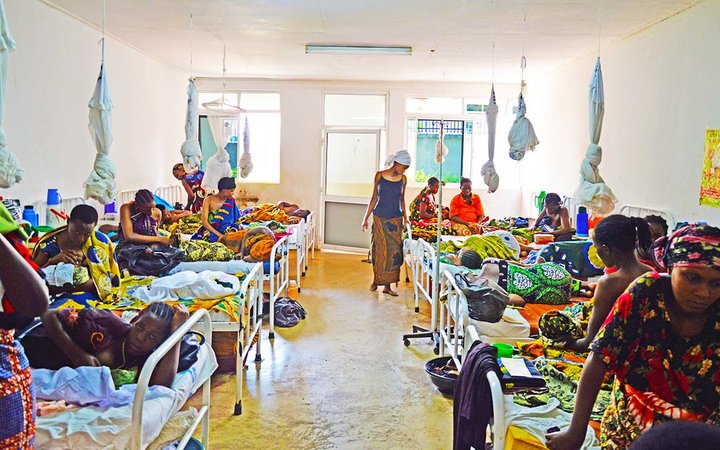
So Rosie, what was your inspiration for studying midwifery?
Well I was originally an actress — I did a degree in musical theatre. But alongside the fact that it’s a difficult industry to be in, I struggled with the fact that it was completely self-oriented. It was all ‘me, myself and I’ and self promotion. And to be honest, that wasn’t really me.
I’d done it for about five years and decided it wasn’t for me anymore. Then I thought back to things I wanted to do when I was a bit younger. Midwifery was always there and I thought It was something I could do that wasn’t all about me.
Actually, it was probably actually the complete opposite of acting. I got the sense it was going to give me the kind of experience that I was looking for because it was about giving to other people.
So how did you go about getting into midwifery? Where did you start?
I was quite lucky because I’d done a degree four years and seven months prior to me applying for my midwifery degree. Anglia Ruskin were asking for recent study (within the last five years) to get onto the course. So, because I’d done A-Levels and had done a degree, I went ahead and applied.
There was a bit of pressure because I knew I had to get in that year!
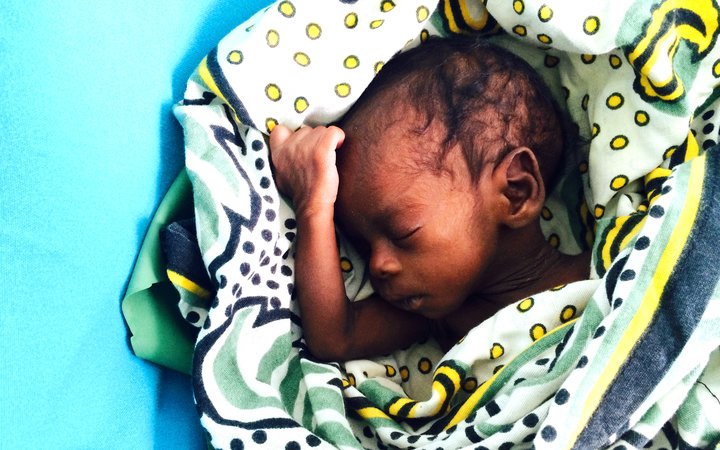
So what prompted you to go to Anglia Ruskin University?
Honestly, I’d lived in so many places by that point. I grew up in Bristol, did my drama degree in Scotland, lived in London… And because I was 25 or 26 at the time I didn’t want to live at home.
So I applied to university based on where it would be cool to live. I applied to universities in Glasgow, Bristol, West London, Brighton, and Anglia Ruskin in Cambridge — all very cool places to live.
So your second uni experience — was it what you expected?
I don’t think I was ever expecting to have the standard uni experience of going to freshers and getting completely upside down. I was too old by that point!
The degree itself was great and I loved training on the job. Anglia Ruskin organised it so that you did six weeks out on placement, then go back into uni for classes, which I really liked.
I know some universities organise it so you have three days on placement, then two days at university. I wouldn’t have gotten on with that so well.
I preferred doing these blocks of shifts because it meant I had the real experience of doing nights and weekends. I think that set me up a bit better for doing the job when I was qualified.
Where did your elective fit into that? When did you travel with us?
So, Anglia Ruskin has placements at the end of second year.
We were one of the first few years to do it after second year — just before we started our final year. I thought that worked quite well, because at that point you’re still a student, but you’re still able to consolidate a lot of what you’ve learned while you’re overseas.
So I booked my trip with Work the World at the end of first year and went at the end of second.
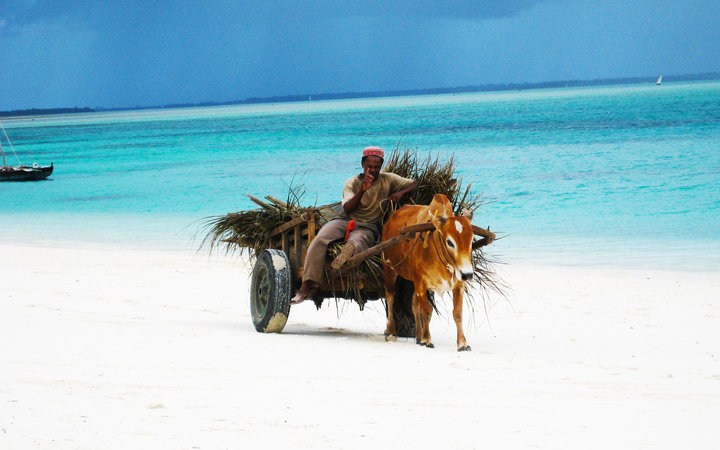
That’s great for you because it means you have the cohort ahead of you to tell you what the actual experience in an overseas hospital was like.
Exactly. Being able to speak to people who’d already been made a big difference in my decision to travel.
Did the uni help you prepare in any way? What was their involvement in the process?
So they have a team who help sort placements. They were contactable and they gave us risk assessment forms, and we had to tell them where we were going and demonstrate a level of safety. But we did most of the actual organising ourselves.
They suggested using an organisation like Work the World to help us plan the trip, but it wasn’t a stipulation. Some people organised their placements in really obscure hospitals in places like the Middle East, but I really didn’t feel as safe or reliable doing it that way.
We do hear plenty of stories from students who have tried to organise things independently and their placements have fallen through at the last minute.
Or they show up to the hospital and no one knows they’re supposed to be there.
Exactly… I would have hated to have turned up at the airport in an unfamiliar country and felt vulnerable.
It’s a difficult decision to take. Some people view it as a bit of a badge of honour to have organised it themselves, but what’s the trade off? You have to ask questions like is the experience going to live up to your expectations? Are you going to be safe? And so on.
You’re right. Knowing that there was going to be someone from Work the World there waiting for me was reassuring. And we had phone numbers of Work the World’s local teams in case anything ever went wrong — they were there to look after us if we needed it and that made a huge difference.
So what made you choose Work the World?
Word of mouth. I had looked at all the websites, and I was leaning towards Work the World anyway, but I then spoke to a qualified midwife who was a couple of years above me and she had been to Tanzania two years prior.
I talked to her about it and she showed me photos… She really recommended it. That was enough because no one else had mentioned these other companies. I’d never heard of them.
Work the World was the frontrunner when it came to who people had actually heard of. They stood out. It was an easy decision.
It makes a big difference when you’ve got someone independent whose experiences you can draw from, doesn’t it.
It was really, really useful to hear it from her perspective. If you’re hearing it straight from the horse’s mouth and the horse is telling you it’s good, go for it!
You’re sending people overseas who without your help might feel vulnerable in a country they’ve never been to before. Travelling with Work the World made us feel safe enough to not only be in the country but also gave us the confidence to go into a local hospital and get stuck in.
You’re doing a great job.
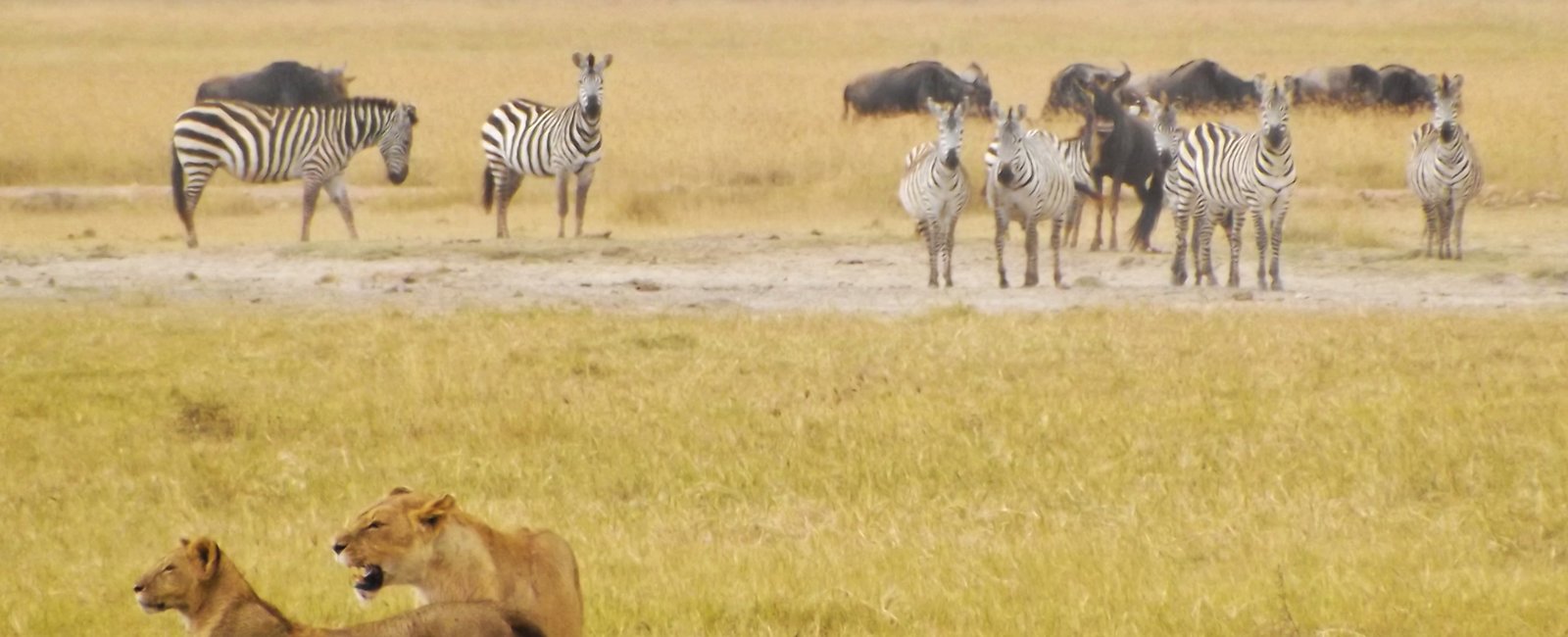 That’s great to hear. Everyone who works here puts a lot of work into making sure you have the experience you’re expecting when you sign up.
That’s great to hear. Everyone who works here puts a lot of work into making sure you have the experience you’re expecting when you sign up.
So you mentioned you’d been to Africa before. Was that a factor in your decision to travel with us to Tanzania as opposed to one of our other destinations?
When I was about 18 I did a trip on one of those touring trucks as a bit of a gap year experience. It was through Africa and we were camping. Africa is a big place with lots of different countries, and even though I saw relatively little of it, I loved what I did see. I got this real sense of community everywhere I went.
Having had that experience, I thought being able to spend time on the African continent in a midwifery context would be really interesting. After looking at your destinations, I felt I wanted to travel to Tanzania, so I landed on Dar es Salaam.
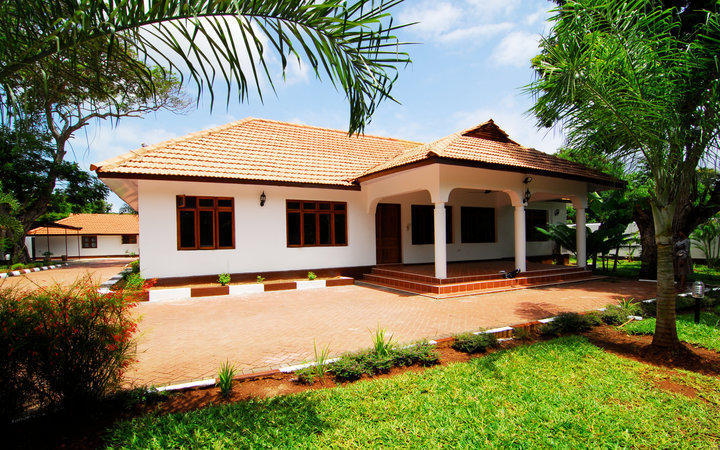
What was your first impression when you got there?
It was nice, because on my flight - and I didn’t know this until I’d made my way into passport control in Tanzania, there were four other students travelling to the same Work the World house.
We all put on our blue Work the World t-shirts in passport control, and while we all waited in the queue to get our visas sorted, we all got to meet each other and chat. It was nice to feel like we were all in it together.
By the time we got through to baggage reclaim, we’d already gotten to know each other quite a bit.
Then we met a member of the Work the World team who was waiting for us in arrivals. They took us on a minibus to our accommodation. It was early afternoon and the sun was shining. We took the coastal route so we could see the sea out the window the whole time. I think we all realised how much fun the trip was going to be in that moment.
So after you got to the house, you settled in and had your welcome briefings. You will have met your other housemates too. On the Monday morning, you’ll have had your city and hospital orientations. What was that experience like?
I thought it would be intimidating, but the people in the hospital were so pleased to see us.
Before the trip I had visions of getting in the way of local staff, but there was never a moment of that. Of course, we only practiced within the scope of our skills, but as well as this being a learning experience for us, we felt that our presence in the hospital was beneficial for local staff too.
Obviously we weren’t the first Work the World students to spend time in the hospital, so the staff understood exactly what we were there for. It was a lot to do with how you came across as well. If you were more enthusiastic and present, the more opportunities you had to get involved.
The staff were aware that we were there to get something from the experience as students. But there was no reason they shouldn’t get something from our being there too. It felt very much like a mutually beneficial arrangement. Which was nice, because in the UK you can often feel like a burden when you’re on placement.
Again, it’s important to note that I never felt like I was being pushed outside my scope of practice. But I was exposed to things out there that I just wouldn’t see in the UK.
So now, as a qualified midwife, I’m more than ready to experience those things in my job because I saw them in person while I was in Tanzania.
One example was a breech birth delivery. It’s not something that you see very often in the UK. To put it into perspective, during all the years I was training and the year I’ve been qualified, I still haven’t seen one in the UK.
Here in the UK, breech deliveries are treated as an emergency, so they almost always result in a C-section. To see a breech baby actually being delivered in Tanzania was incredible. I wrote my dissertation about it.
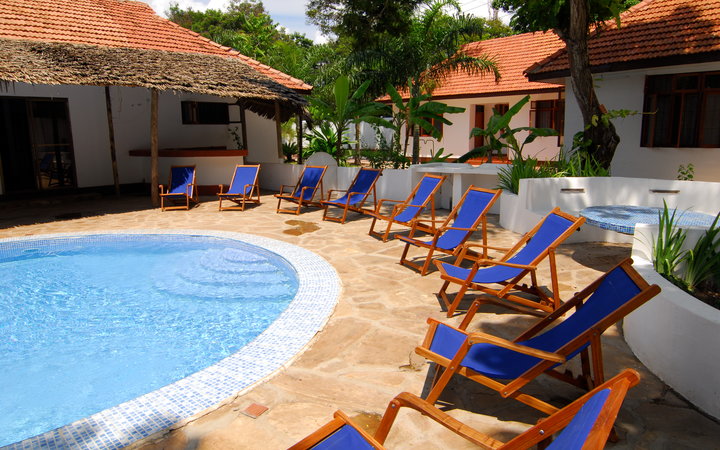
Were there other practices you saw in the hospital that differ from how they’re approached in the UK?
I was quite surprised that the local midwives don’t really listen to the baby. In the UK, we listen to the baby all the time, even during pre-labour. And when a woman starts pushing, we’ll listen to the baby’s heartbeat every five minutes.
While I was in Tanzania I think I saw it done once. I think one of the reasons was because they didn’t have the resources. They didn’t have the technology and would use a Pinnard stethoscope rather than the dopplers we have in the UK. And they didn’t even have many of those.
But it also felt like life had a different value placed on it out in Tanzania.
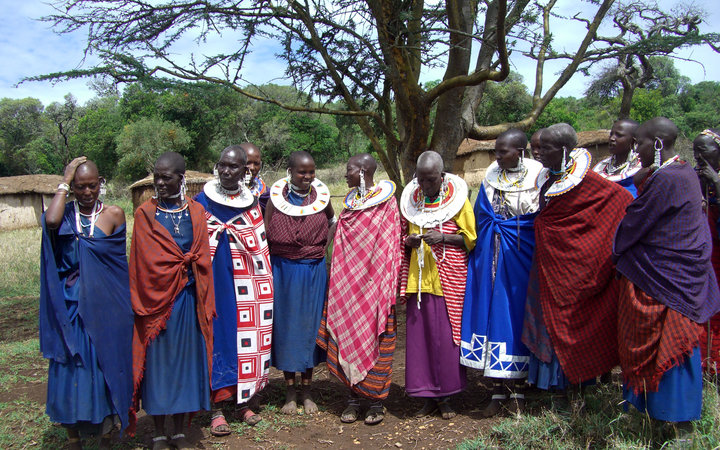 I sadly saw a woman lose a baby while I was out there. The baby was very small – I think must have been about 26 or 27 weeks old.
I sadly saw a woman lose a baby while I was out there. The baby was very small – I think must have been about 26 or 27 weeks old.
In the UK that baby would have been rushed over to the neonatal unit and pumped full of drugs, stuck on a ventilator and would probably leave the hospital with minimal deficits, but alive.
In Tanzania, they didn’t have the resources to do something like that. That baby passing away was inevitable. The baby was just put on the mother’s chest and it passed away within about 20 minutes.
The mother’s reaction to the situation wasn’t something I’d come across before. I was with her, trying to help and actively observing. The best way I can describe her response is to say that she was pragmatic about it. It’s not that she wasn’t upset — she was. It’s more that she was acknowledging that things don’t always go the way they might.
The expectation isn’t there in the same way as it is for most in the UK. In the UK, from the moment you get to 12 weeks into your pregnancy, the mindset is “I’m having a baby.”
And for the overwhelming majority, that’s a safe assumption to make. Chances are that you’ll go home from hospital with a well baby. You don’t know how it will happen or how smoothly it’ll go — there might be a little emergency or something — but you’re pretty safe in the assumption that you and baby are going to go home and be safe and well and not have any life-limiting conditions.
I got the sense in Tanzania that the same assumption wasn’t there. It felt like it was more hope than expectation just because their reality is so different from ours. It’s just the norm for them.
It speaks volumes about our privilege in a more developed country like the UK, doesn’t it. And that’s a big part of why people choose to go on placements like these. As well as seeing the clinical differences, it gives you these insights into local culture. Even outside of the hospital.
That’s it. It really puts complaints that we have into perspective.
Anywhere you go in Dar es Salaam, you’re going to see people from totally different backgrounds — there are really plush parts of the city and really deprived parts of the city. We explored quite a lot. We went to a posh hotel on some afternoons because they had a private beach there.
There were mostly Tanzanian people there because there isn’t a lot of international travel to Dar. Then you go to the other half of town where they’re selling paintings on the street as their only means of income. At the end of the day they go back to the slums. It’s a stark contrast.
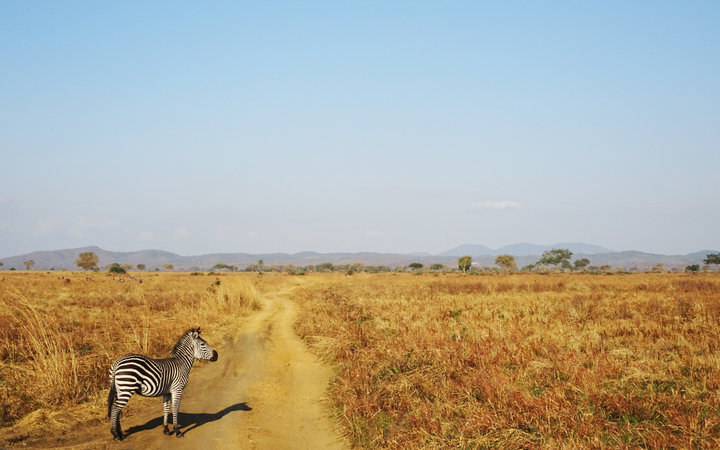
In my experience the wealth gap in countries like Tanzania is far more pronounced than it is in the UK. I think it’s because while the gap exists in the UK, the standard of living is higher and there’s a more even distribution of wealth, even if it’s not perfect.
That’s exactly right. And the people who you see coming into the hospital each day — the government hospital — aren’t the people who have the money. They’ve probably walked for a day just to get there because they don’t have the money for transport.
On that point then, what was it like interacting with patients? Did you get much insight from them?
I think as British midwives we’re trained to be very compassionate and to communicate with mum as much as possible.
As soon as you’re in labour you get 1 - 1 care with a midwife in the UK. In Tanzania the women stay on the antenatal ward until they’re fully dilated, then go across to the labour ward, hop up on the bed and push the baby out.
There was one young girl who must have been about 14 or 15. She was holding my hand and said “msaada”, which means help in Swahili. She was terrified. In the UK, a 14 or 15-year-old girl would have her mum there, she’d have an epidural, she’d be in a birthing pool with candles lit and her favourite tv show on.
The contrast between that versus a girl of that age in a low-resource hospital in Tanzania asking me for help was stark.
The language barrier was a challenge. But we learned enough Swahili in the language lessons we had in the Work the World house to be able to communicate what we needed to, at least medically.
But beyond the clinical phrases and vocab, just being able to tell patients our name and asking them theirs was enough to establish trust and a bit of rapport. And that was funny because in the UK you have to go in and show you really know what you’re doing to earn women’s trust. But in Tanzania, you tell them your name, hold your hand and that’s enough.
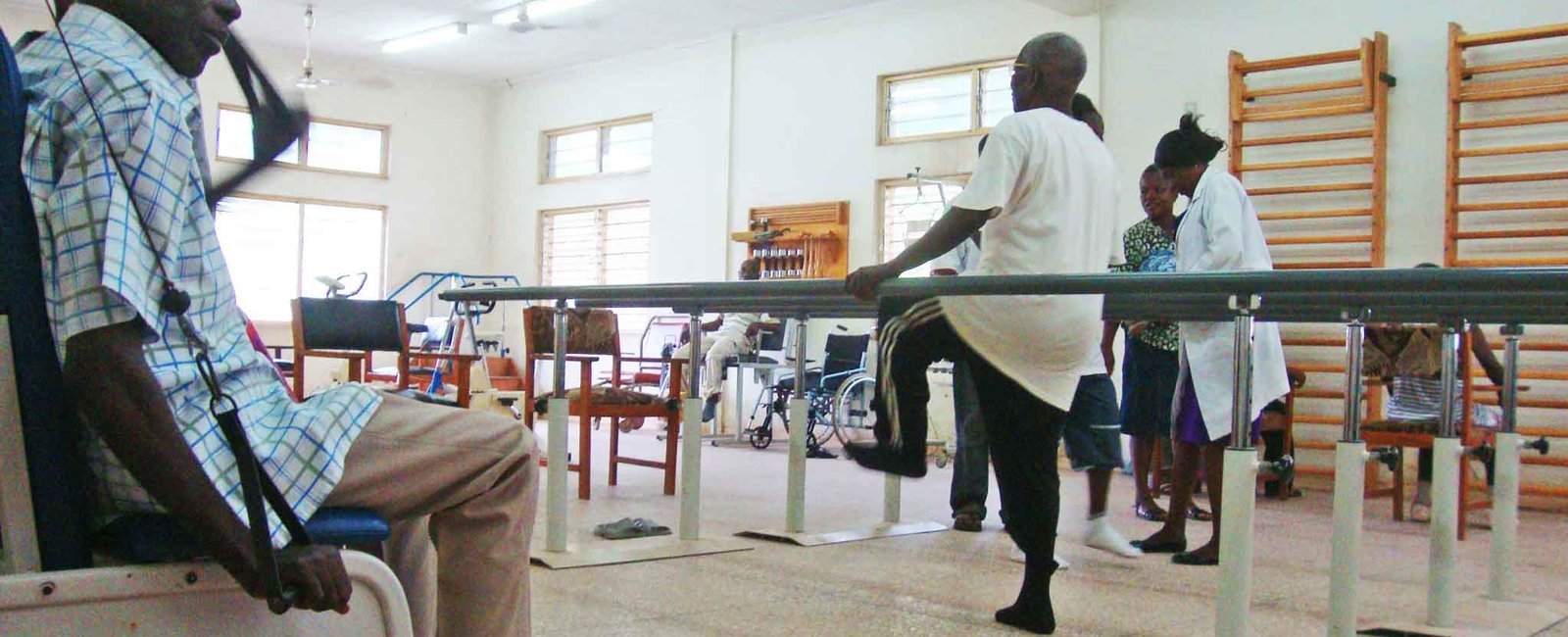
So you had your couple of weeks and had plenty of experiences by the sound of things. How did your impressions change throughout your time in the hospital?
I think I probably went out there expecting there to be this limitation on resources, which there was. But I also went out there thinking, probably naively, that this would reflect in the skills of local staff.
I was expecting that because these resources weren’t there, they wouldn’t be able to do some of the things that we do. I’d made an incorrect assumption — what I actually saw was midwives who, as a result of not having access to the tech we have access to, were substantially more skilled than many midwives in the UK.
In the UK, a footling breech will — 100% of the time — end up in theatre. It’s a life-threatening situation. In Tanzania, where it might take two hours to get into a theatre, this isn’t an option. So local midwives have no choice but to deliver that baby as it lies. That’s something that no midwife in the UK has been taught to do. It’s not something you’re trained to do because you’ll never have to do it.
The Tanzanian midwives have developed skills that allow them to deliver so many babies in a day. It doesn’t matter what emergencies there are, they always have a way to work around the problem. And yes, there are always going to be cases where they have a bad outcome. But when the proverbial hits the fan, the local midwives have these skills that seem to come from nowhere. And it’s because of that lack of resources.
They say the strongest steel is forged in the hottest fire.
I couldn’t have put it better!
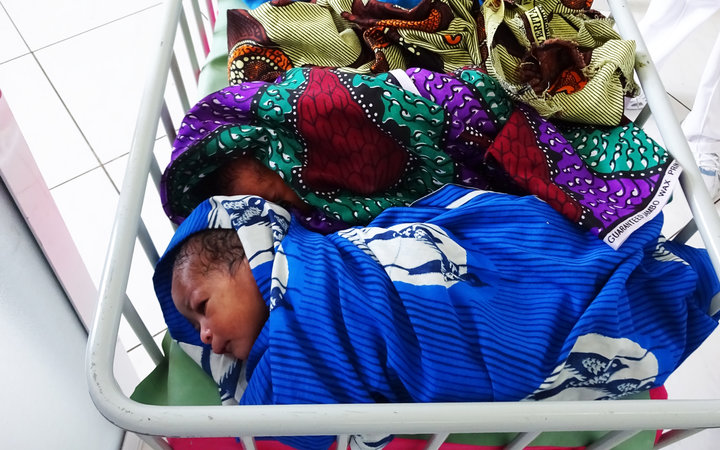
So what other complications did you see local midwives having to deal with?
Another problem they had was not getting much in the way of histories for these women. In the UK we study the notes. There might be a slight risk of bleeding with a particular woman because of X, Y, or Z, or whatever it might be. You can act accordingly.
In Tanzania, it’s another story. You see a woman, she’s full term and fully dilated, and that’s the only information you have. You don’t know if there’s a risk of bleeding, a hemorrhage where she nearly died… The information just isn’t there.
But again, if something does happen these midwives jump straight in and deal with it without all the resources. That includes pain relief for the women.
They’ve learned how to do the job with their bare hands, come what may. And it goes beyond that — they have an emotional robustness that I’ve never seen before.
Again, I think this is borne out of necessity. The simple fact of the matter is that over there, some babies and some mothers die. It’s still a very bad day when it happens but understanding that it could be around the corner at any moment steels you. In the UK, for every baby who doesn’t make it, there are investigations, postmortems… We look for the reasons why.
It doesn’t happen very often, and we try to make it less often each year. That isn’t to say they don’t try to bring the rates down in Tanzania. But again, they acknowledge that it’s something that just ‘happens’.
They do everything they can, they really do. I saw some tiny twins out there and the only machine they have to help babies that small is a kind of tube that goes up your nose — you’ve probably seen it being used on old people here in the UK. It pumps pressurised oxygen into the lungs.
So these twins had to have this machine (that’s probably about 45 years out of date) making a horrendous noise stuffed up their nose. But they were breathing.
And that’s the entire point — local staff do the best they can with what they have.
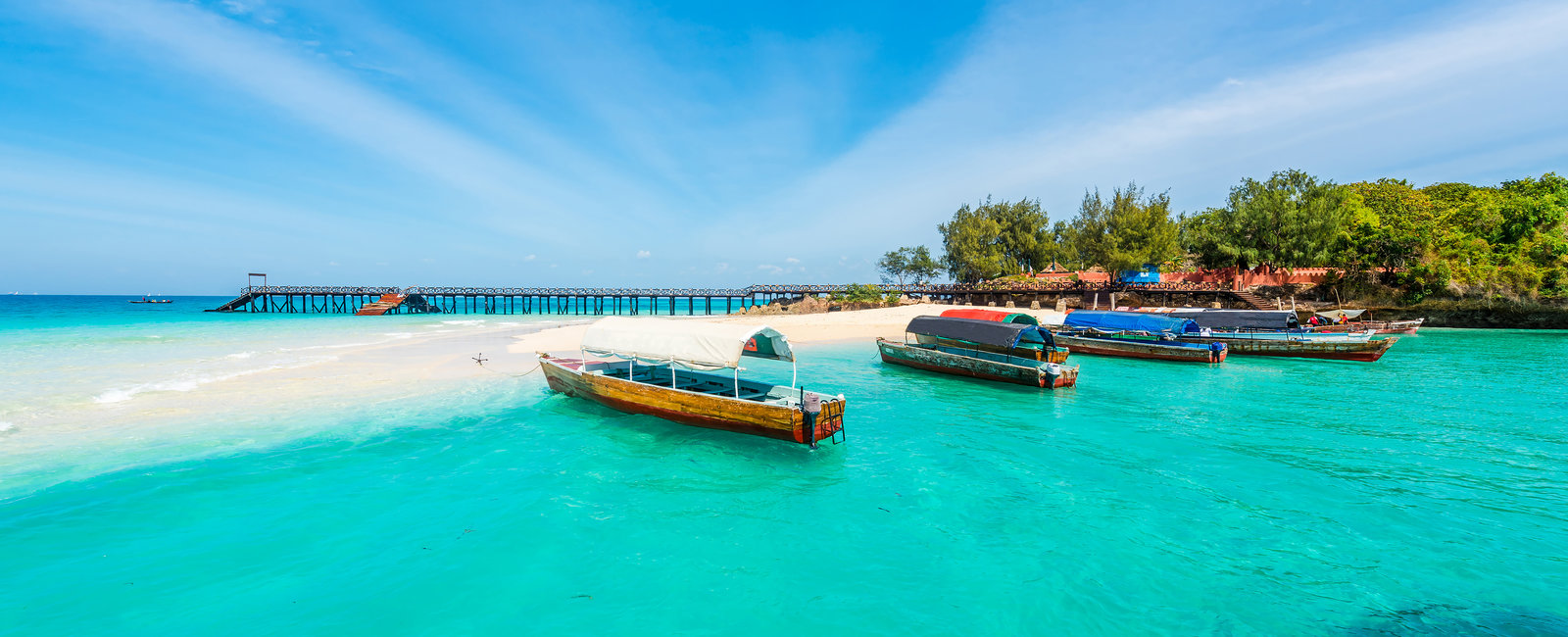
Aside from seeing some very stark realities within the hospital, you also got to experience Tanzania outside of placement too.
What kind of things did you get up on your weekend away from the hospital?
I went on safari which was amazing. I’ve done safaris before and I remember thinking that a two-day safari with a couple of game drives probably wouldn’t compare to the week-long ones I’d done in the past. But, actually, I think this safari experience was much more real.
I wasn’t expecting to see as much. But I thought even seeing just one elephant in the wild is still an amazing experience. And actually, we saw everything and it ended up being one of the best safaris I’ve done.
We had our meals cooked for us. There was a campfire, so we had hot chocolate by the campfire in the evening. We stayed in little huts that had four-poster double beds with mosquito nets. It was lovely.
Having the chance to do something like this on the weekend was in itself worth the money.
Particularly because I was experiencing things so different from what I’d normally see in hospitals back home, it’s important to be able to switch your brain off properly.
The chance to do something that felt so much more like a holiday meant that when I went back on placement I felt really refreshed and ready to get back to it.
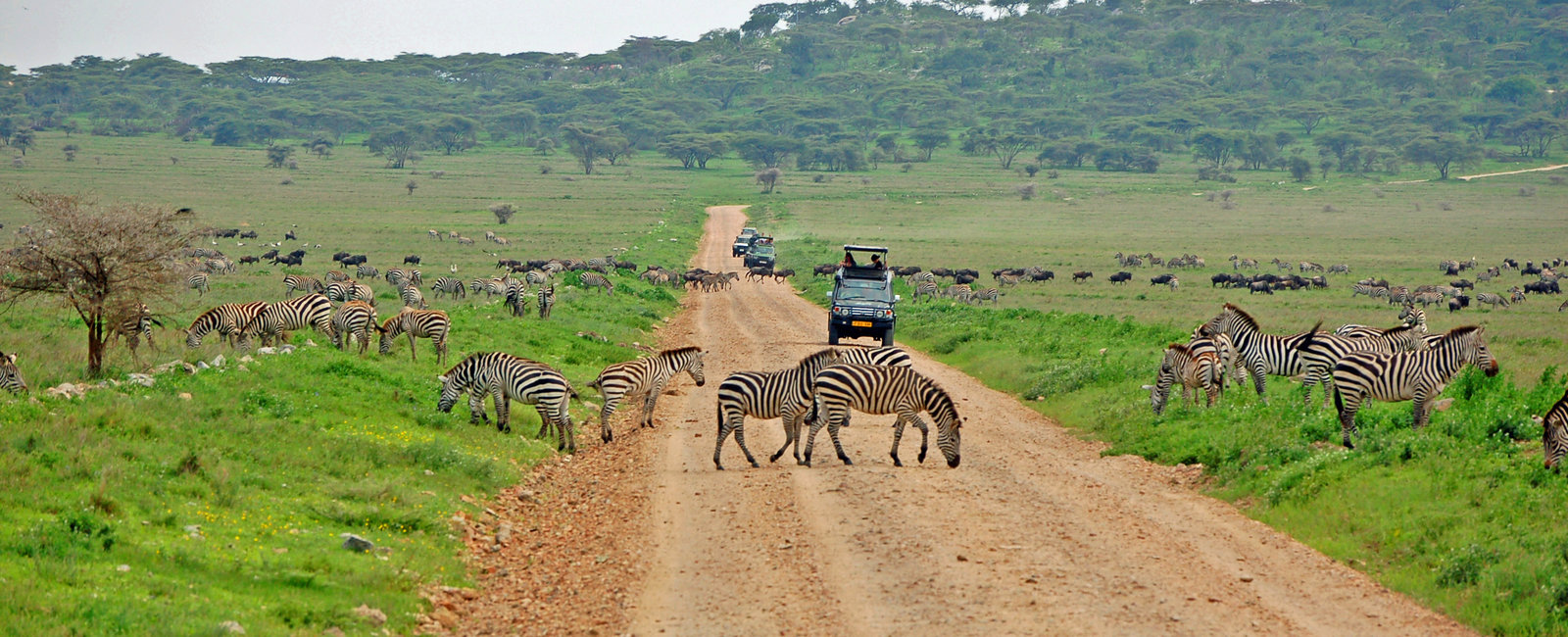
I think it’s part of the appeal of taking a trip like this is that the majority of the time you’re in the hospital, so you need to have an outlet, whether that’s in the evenings or on the weekends, you have a chance to reset and get back at it.
Of course, some people might find it more challenging than others, but how did you find that?
Seeing how emotionally robust the staff were made me feel brave enough to face it.
There were of course things that surprised me and situations that I wasn’t necessarily used to seeing. The footling breech birth, for example. But I don’t think there was ever anything that I came away from and felt upset about. I actually feel like this occurs more often in the UK.
I think we’re all much more sensitive to things in the UK because there feels like there’s a lot more pressure. But in Tanzania, I found that the women you were caring for had so much gratitude for the care provided – for safely bringing their child into the world.
I think it’s the expectation that things could go wrong and they know that, and when you present them with their baby, they’re just so grateful. I think that outweighs anything you might see that is not what you’re used to because every single woman was so overwhelmed by the fact that they’re leaving with a healthy baby.
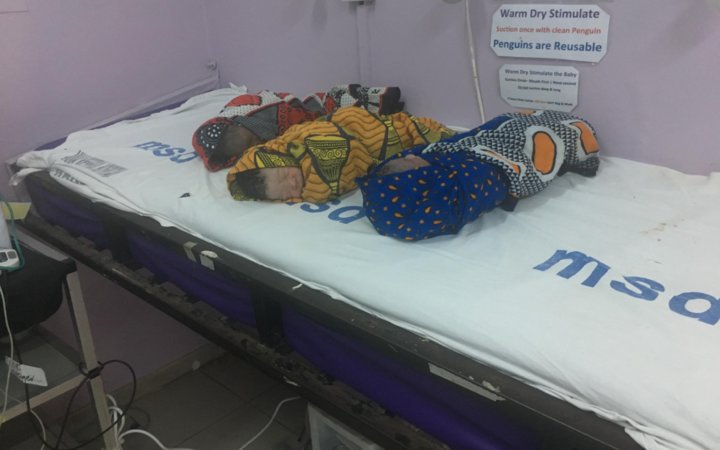
I mean that’s the silver lining, isn’t it? That with that risk, when you have a win it’s a big win.
Yes, it does kind of feel like a risk-reward situation. There was the occasional instance of an unpleasant birth, but when it did go well it felt like a huge reward. And every single woman showed overwhelming gratitude to me for just being there to hold their hand. It’s this gratitude for seemingly basic care that made it for me.
You never expect to get anything back from the women you care for, and that’s not why I do it. But when a woman smiles at you and says thank you, that’s all you need and that’s what makes a difference. When the women out in Tanzania were wrapping their arms around me and offering me gifts, when they have very little themselves, it was humbling.
One woman insisted I take a gift from her. They all had these special, individually printed blankets that they wrap the babies in, and this one woman had a spare one that she kept trying to give to me saying “asante, asante”. I checked with one of the Tanzanian midwives to make sure I understood the situation and she said that the woman would be upset if I didn’t accept her gift as thanks.
You don’t train to become a midwife for gratitude or to receive presents, but knowing that you made such a difference to these women is special – the level of appreciation you get out there is huge. When you’re having a particularly tough day and then there’s a beautiful birth and the woman is so grateful, it gives you the boost you need to go on.
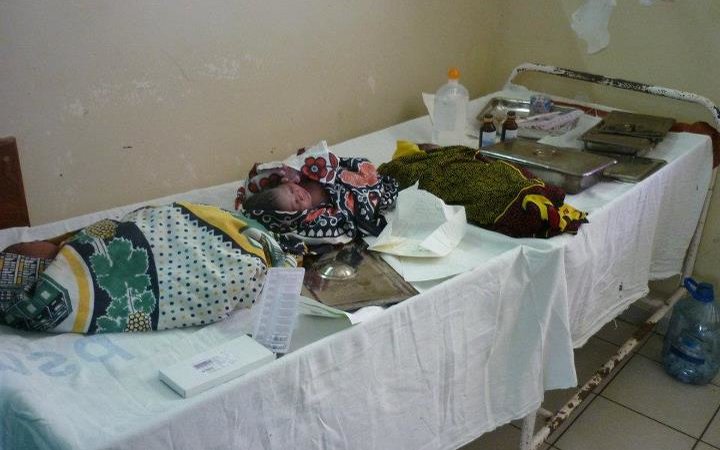
It sounds like you had such an amazing experience. When you returned home, you had a year left of your degree – do you feel like your experience changed your approach to the rest of your study?
It gave me my dissertation topic. I think finding a dissertation topic you really care about is hard. Often people will choose a topic based on the amount of research available. But I think it’s more important to choose a topic you’re passionate about.
The experience I had in Tanzania helped to provide that passion for me. I’m still very passionate about it now. I don’t understand why women are put in a position where they are scared of having a breech baby when actually it can be a perfectly safe delivery if the circumstances are right – I’ve seen it.
My time in Tanzania also made me hugely respectful of midwifery as a skill. It made me think more about the reliance on technology and the online systems we use day-to-day. Now that I’m qualified I place a huge amount of importance on my own intuition. If the technology is telling me everything is fine, but my instinct is telling me something isn’t quite right with a patient, I’ll go with my instinct. It’s because I’ve gained confidence in my own skills and respect for the intuition of the midwife. A computer can tell you one thing, but if you’re a skilled professional and you still have doubts, the chances are there’s something not quite right and the computer isn’t picking it up.
It’s important to remember that midwives have been around since the dawn of time. And they didn’t have all of this technology available to them. They’d use a plastic or cardboard cone to listen to a baby’s heartbeat.
My time in Tanzania brought that back for me. If I can trust myself as a midwife then I don’t need to be scared of the job. I can use the resources that we have to benefit my skills and to benefit the care of the woman. It’s about using technology to help you do your job better, not using technology so you can do the job.
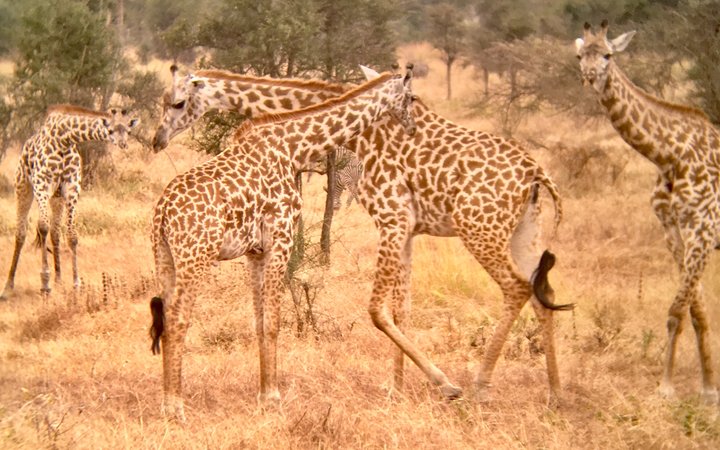
And you’re a community midwife now. How did that come about? What were the steps from university to there?
Well, as a newly qualified midwife you rotate through various different areas. I did about five months on the ward, three months on the midwife-led unit and then five months on the high-risk delivery unit. After that, my next rotation was community. And that’s where I am now. I don’t know where I’ll end up and where I will stay yet.
As a result of the trip, I am incredibly passionate about empowering women to make their own choices and believe in their bodies. I think it’s important to have someone there to tell them before their birth that they’re awesome and that they can do this. Doing so means they go in with this positive mindset knowing exactly what to expect and knowing that they can do it.
What would you say to someone who was hesitant about going on a trip like this? Are there any words of encouragement you’d give a student thinking about undertaking a midwifery placement overseas?
I would tell them that it is a once-in-a-lifetime opportunity. It is the one time you’ll have the chance to do it. Once you qualify, you’re being paid and you’re going to have to take annual leave to go and do these things.
You’ve been given the chance, and actively encouraged to do something different with your placement and this is about as different as you can get. It will give you the widest educational experience and give you this incredible perspective on what we have.
I wouldn’t hesitate, I really wouldn’t because you’re never going to get this chance again – just do it.
If I was in the position again, I’d do it again a hundred times. It taught me so much. I came away from it as a better midwife than I would be if I hadn’t been and that’s what you want to get out of it.

Next Steps
Where to?
Want to experience a life-changing overseas placement like Rosie's? Choose a destination to get started.
Want to experience a life-changing overseas placement like Rosie's? Choose a destination to get started.
